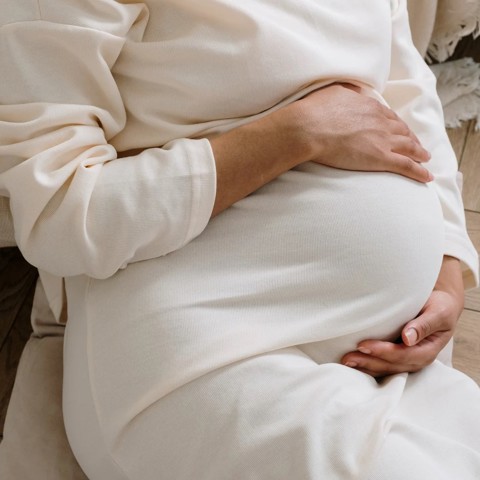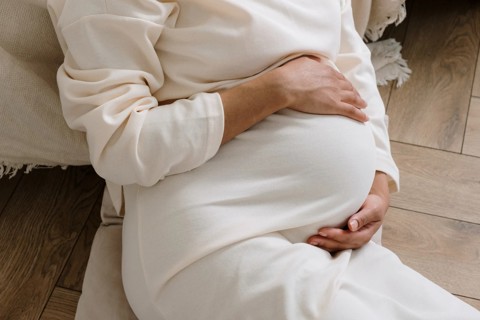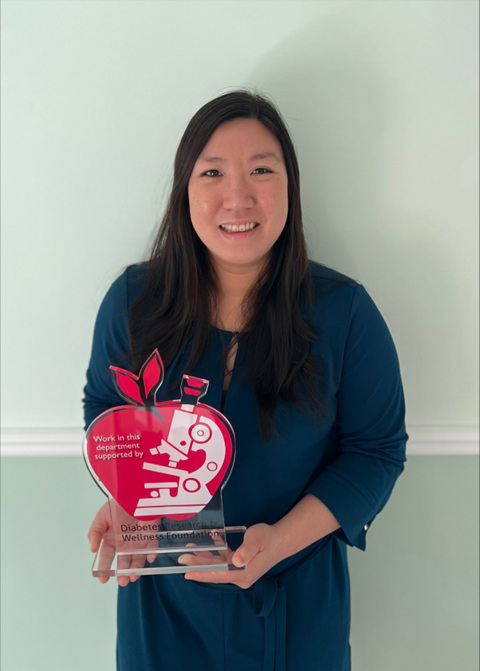
DRWF Research in focus: DRWF-funded research into type 1 diabetes in pregnancy
We talk to Dr Tara Lee about her DRWF-funded research into the relationship between the mother’s glucose levels and the baby’s growth and managing glucose levels during hospital admissions and the first six months with a newborn.
Dr Tara Lee, of the University of East Anglia, was awarded the DRWF Sutherland-Earl Clinical Fellowship in 2021 for her DILIGENT study.
The DILIGENT study stands for Use of Diabetes technology on bIrthweight, Labour, Inpatient and postpartum Glycaemia of pregnant womEN with Type 1 diabetes.
The Sutherland-Earl Clinical Fellowship
The Sutherland-Earl Clinical Fellowship is awarded every other year. Applications are invited from medically qualified doctors (MBChB or equivalent) working towards a higher degree, ie MD or PhD.
DRWF Sutherland-Earl Clinical Research Fellowships cover a period of up to three years, in a recognised institution or department within the United Kingdom.
The structure by which DRWF measure clinical impact on people with diabetes from our grant awards takes time and is rarely easy to quantify. We routinely look to measure three things –
- Benefits for people with diabetes
- Capacity building in terms of proof-of-concept awards that collect pilot study data robust enough to go on and leverage higher value funding to take the work further
- Publication and presentation of the work and its outcomes, and subsequent citations of the work by peers
Commitment to funding high-quality research
DRWF is a member of the Association of Medical Research Charities (AMRC), a membership body representing the leading medical and health research charities who deliver high-quality research that saves and improves lives.
This relationship highlights the importance of providing funds such as these awards to ensure that DRWF support the progression of early career diabetes researchers.
Read more here
Carol Bewick, Director of Membership Engagement and Communications at AMRC, said: “We know there is limited understanding outside of the medical research world about the vital roles the charity, industry and public sectors play to ensure the UK remains an international research powerhouse.”
The DRWF Sutherland-Earl Clinical Research Fellowship award to Dr Lee in 2021 is valued at £237,007.
Dr Lee said: “Despite increased use of continuous glucose monitoring (CGM) and insulin pumps, most pregnant women with type 1 diabetes struggle to manage their glucose levels in pregnancy.
“Many deliver large birthweight babies and experience additional challenges managing their diabetes during hospital admissions and after birth.
“My project will examine how the mother’s glucose levels and insulin therapy relate to baby’s growth patterns and birthweight and also how women manage their glucose levels when admitted to hospital and the first six months after having a baby.”
Helping women with diabetes and pregnancy
What does this fellowship mean to you and your research both now and in the future?
“Many clinical doctors – who work in hospitals – don’t do research alongside their clinical professional training and careers, in some cases because their interests lie elsewhere, such as education or management. But for some of us, unless we’re lucky and can take time out, research is something that we’re not able to do because there aren’t as many opportunities.
“This fellowship has allowed me to take three years out of training without having to worry about salary because the NHS doesn’t fund full-time researchers. It has allowed me to work on something that I think is important and will help women with diabetes and pregnancy.
“It has also allowed me to complete a postgraduate research degree and hopefully this will give me the training to build a strong foundation as a career researcher and add to my skills as a doctor overall.”
How long was the process and what did you have to produce for the DRWF Research Advisory Board?
“The fellowship is a three-stage application process. There is initially a pre-application which goes to the Research Advisory Board and then the top-ranking applications are invited to submit a full application, which is longer and more detailed. These are scored and the top three successful ones are invited to interview. I think the whole process was probably six to nine months.”
What are your ongoing progress commitments for DRWF?
“I am expected to give yearly reports on my work. This is reviewed by the chairman and members of the Research Advisory Board of DRWF. This is to ensure the work I am doing is in line with my original research plan and the expectations of DRWF.”

Lifestyle changes when there is a newborn baby to look after
Tell us about DILIGENT and what you will be exploring in a bit more detail?
“One of the reasons why my title was so long is my project is split into three interlinking studies.
“The first will explore further the relationship between the mother’s glucose levels and the baby’s growth.
“The second will explore the management of glucose levels, specifically during hospital admissions.
“Women are admitted because they are unwell or because they need extra help for the pregnancy or their diabetes, and for labour and delivery.
“The third project will be a longer-term look at the changes in glucose levels and insulin doses of women in the first six months after having their baby.
“We know that after having a baby, their lifestyle changes quite a lot when there is a newborn baby to look after.
“We want to look at how their glucose levels change, how women cope with this and what we can do to help make this transition easier for them.”
What additional challenges do mothers face managing their diabetes during the admissions and after birth?
“During the course of pregnancy, women with type 1 diabetes are admitted to hospital for various reasons.
“Diabetes-related conditions can include hypoglycaemia (low blood glucose levels), diabetic ketoacidosis (or DKA, a complication of diabetes where there are increased levels of a chemical called ketones in the blood) and obstetric (pregnancy-related) reasons like severe morning sickness and worries about the placenta or their baby.
“Being in hospital can also pose massive challenges to looking after your own glucose levels, things that you would not even think about at home like changes in diet, hospital food, not being able to do as much activity as you may usually do to manage your own glucose levels.
“In addition, there is the extra stress of the reason why they are in hospital. Being unwell changes how your body responds to insulin as well as the glucose levels themselves. Altogether, these things make insulin dosing more challenging in hospital.”
You are also going to be examining which diabetes technologies help pregnant women to achieve their glucose targets during those hospital admissions and after birth. How are you going to do that?
“Until earlier this year, the guidelines recommended the use of a variable rate insulin infusion, or sliding scale as lots of people know it as. But there were concerns about the risks and benefits of managing glucose levels in this way and when looking at published data we do not have much information about what happens to women’s glucose levels during these admissions.
“We also don’t know the best way to support someone’s glucose management in hospital. I know from my experience when I was an obstetric registrar on the wards, women find it really daunting coming into hospital with the prospect of a sliding scale and having all their self-management taken away from them.
“Having more information on what happens to glucose levels in hospital will help us support people to decide how they would like to manage their diabetes in hospital and after they have their baby.”

How diabetes technology can be used to improve pregnancy
What are your three top priority diabetes pregnancy research questions?
“The three top priority diabetes pregnancy research questions related to my studies are:
- How can diabetes technology be used to improve pregnancy, birth and mother and child health outcomes?
- What are the labour and birth experiences of women with diabetes, and how can their choices and shared decision-making be enhanced?
- What are the specific postnatal care and support needs of women with diabetes and their infants?”
What does charity funding mean to researchers like yourself?
“Charity funding is important because there are limited opportunities in terms of the big research organisations like National Institute of Health and Care Research (NIHR) to fund individuals.
“I think charity funding means that there is more opportunity to continue research in various areas. In addition, I think charities are really unique in that they are able to channel their funding more directly.
“For example, DRWF is able to channel their funding into diabetes-related studies.
“DRWF has the opportunity to say which are the best out of all the diabetes-related studies proposed to them. I also think that it is great for people who are involved in diabetes or have diabetes or support people with diabetes to see where their money is going.”
Anything else you would like to add?
“I would like to say thank you to everyone from DRWF and all the support that I have had. It has been really amazing. I’m an early career researcher, so this is all pretty new to me and I am just blown away by the amount of support and the amount of enthusiasm that sometimes, working day to day in the NHS, you don’t always get.”
Read more on DRWF Research: Dr Tara Lee awarded the DRWF Sutherland-Earl Clinical Fellowship here
www.drwf.org.uk/news-and-events/news/drwf-research-dr-tara-lee-awarded-the-drwf-sutherland-earlclinical-fellowship/
This article was originally published in the January 2023 edition of Diabetes Wellness News. For more information and to subscribe to the DRWF quarterly newsletter visit here
I would like to make a regular donation of
I would like to make a single donation of
There are lots of ways to raise money to support
people living with all forms of diabetes.
Bake, Swim, Cycle, Fly ... Do It For DRWF!
Fundraise with us
Recent News


